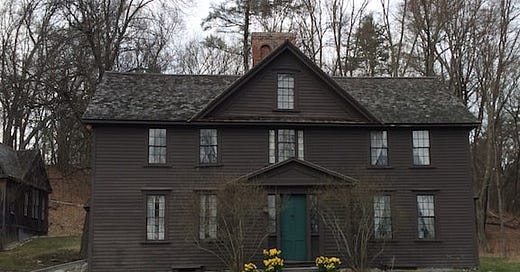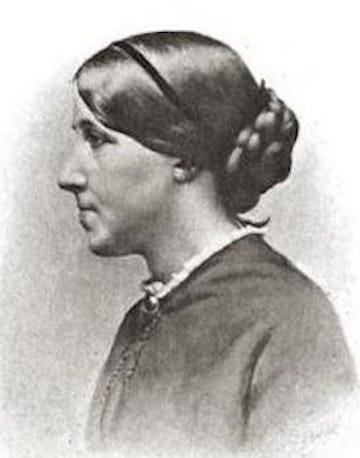A visit to Louisa May Alcott's Orchard House
An armchair (or actual) journey to the home where Little Women was written
Orchard House, best known as the home in which Louisa May Alcott wrote Little Women and other classics, is a literary site that’s a must-do for devotees of this beloved American author.
I had the pleasure of visiting Orchard House just B.C. (Before Covid) and am craving a return visit. If you’re anywhere near New England or plan to visit Boston, I highly recommend spending at least one day in this historic town, where you can visit the Alcotts, as well as other sites devoted to Nathaniel Hawthorne, Ralph Waldo Emerson, and Henry David Thoreau. Nerd Heaven!
And if not, please armchair travel with me to Orchard House in today’s Literary Ladies Lite Sunday edition.
Located in Concord, Massachusetts (within an hour drive or train from Boston) Orchard House opened its doors to the public in 1911, some twenty-three years after the deaths of Louisa and her father, the noted philosopher and educator Amos Bronson Alcott.
The interior rooms of Orchard House can be seen via a docent-led tour lasting about an hour. The Alcott family comes to life through the tour guide’s narrative, and questions are cheerfully answered along the way.
How much of the story in Little Women is embodied in the rooms of the house and the renowned family that inhabited it? This classic has been beloved for generations, ever since its publication in 1868. The semi-autobiographical portrait of the March family did indeed draw a great deal of inspiration from the Alcott's Orchard House years.
The real Alcotts and the fictional March family
The sister central to the tale, Jo March, was Louisa’s idealized alter ego. Restless, quick-tempered, and tomboyish, Jo is an aspiring writer and the family’s creative ringleader, much as Louisa was.
Meg, the most conventional sister, was modeled on Anna, the eldest Alcott sister; Beth, whose premature death broke hearts was based on Elizabeth, whose actual death had a profound effect on Louisa; and the youngest, May, was the inspiration for Amy, who became an even more accomplished artist than her literary counterpart (known after marriage as May Alcott Nieriker).
Keep reading with a 7-day free trial
Subscribe to Literary Ladies Guide to keep reading this post and get 7 days of free access to the full post archives.





